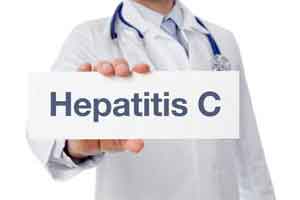- Home
- Editorial
- News
- Practice Guidelines
- Anesthesiology Guidelines
- Cancer Guidelines
- Cardiac Sciences Guidelines
- Critical Care Guidelines
- Dentistry Guidelines
- Dermatology Guidelines
- Diabetes and Endo Guidelines
- Diagnostics Guidelines
- ENT Guidelines
- Featured Practice Guidelines
- Gastroenterology Guidelines
- Geriatrics Guidelines
- Medicine Guidelines
- Nephrology Guidelines
- Neurosciences Guidelines
- Obs and Gynae Guidelines
- Ophthalmology Guidelines
- Orthopaedics Guidelines
- Paediatrics Guidelines
- Psychiatry Guidelines
- Pulmonology Guidelines
- Radiology Guidelines
- Surgery Guidelines
- Urology Guidelines
CDC, ACP issue Joint Guidance on Hepatitis B Vaccination and Screening

The American College of Physicians (ACP) and the Centers for Disease Control and Prevention (CDC) say that hepatitis B is a serious health threat and should be a public health priority. They recommend screening at-risk adults, increasing hepatitis B vaccination rates, and linking infected persons to care. They have jointly issued new recommendations for care of patients with hepatitis B including screening and vaccination with an aim to reduce chronic hepatitis B infections by screening at-risk adults, increasing hepatitis B vaccination rates, and linking infected persons to care.The guidance has been Published in the Annals of Internal Medicine.
Must vaccinate the following at-risk adults:
- Those at risk from mucosal or percutaneous exposure to blood — e.g., injection drug users, healthcare workers
- Patients with chronic liver disease, end-stage renal disease, or HIV
- Pregnant patients who have high-risk sexual activity or drug use
- People who travel to countries where HBV infection is endemic
Must screen the following at-risk groups for hepatitis B infection:
- People born in countries with an HBV prevalence of 2% or above
- Men who have sex with men
- Injection drug users
- Patients with HIV or end-stage renal disease
- Household and sexual contacts of patients with HBV
- Blood and tissue donors
- Pregnant women
- People with hepatitis C or those who have elevated alanine aminotransferase levels
- Incarcerated people
- Infants born to HBV-infected mothers
All the patients who test positive for HBsAg should be provided counseling and HBV-directed care.Physicians should provide or refer all patients identified with HBV for post-test counseling and hepatitis B-directed care, ACP and the CDC advised. All patients with chronic hepatitis B should be routinely evaluated for hepatocellular carcinoma and treatment eligibility through a history and physical exam.

Disclaimer: This site is primarily intended for healthcare professionals. Any content/information on this website does not replace the advice of medical and/or health professionals and should not be construed as medical/diagnostic advice/endorsement or prescription. Use of this site is subject to our terms of use, privacy policy, advertisement policy. © 2020 Minerva Medical Treatment Pvt Ltd